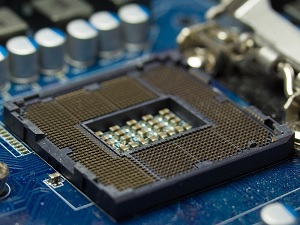The latest update addresses a total of 27 vulnerabilities. Ten of them rated as high severity flaws that impact Intel’s Graphics Drivers for Windows. Also impacted is the Smart Sound Technology integrated into Intel Core and Intel Atom CPUs.
The vulnerabilities recently patched spanned a whole range of threats. Some allowed non-authenticated users to access sensitive information, while others could have been abused to escalate privileges or to trigger denial of service attacks.
Below is a quick list of the big issues addressed by the most recent patch:
- INTEL-SA-00354: Intel Smart Sound Technology Advisory (CVSS 8.6)
- INTEL-SA-00315: Intel Graphics Driver Advisory (CVSS 3.2 – 8.4)
- INTEL-SA-00352 : BlueZ Advisory (CVSS 7.1)
- INTEL-SA-00343: Intel NUC Firmware Advisory (CVSS 7.7 – 7.8)
- INTEL-SA-00349 : Intel MAX 10 FPGA Advisory (CVSS 6.1)
- INTEL-SA-00319: Intel FPGA Programmable Acceleration Card N3000 Advisory (CVSS 4.4 – 6)
- INTEL-SA-00330: Snoop Assisted L1D Sampling Advisory (CVSS 5.6)
- INTEL-SA-00334: Intel Processors Load Value Injection Advisory (CVSS 5.6)
- INTEL-SA-00326: Intel Optane DC Persistent Memory Module Management Software Advisory (CVSS 4.4)
If any of the tech listed above looks or sounds familiar, don’t delay. Download and install this patch right away. If you’re not particular tech-savvy and you’re not sure, but you know you use an Intel-based machine, the smart play is to download and install the patch just to be safe.
This is a big deal, and a number of the flaws addressed by this most recent update could easily be turned against you. Don’t let that happen. It’s just not worth the risk. There are times when companies release patches we’d consider to be optional or at least lower priority but this isn’t one of those times.

